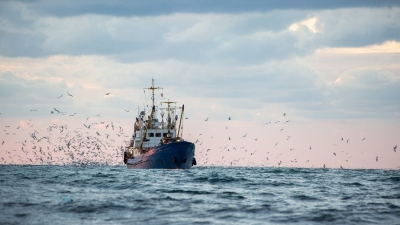The Brief – The Croatian conundrum

It’s a political conundrum that’s been plaguing Europe for a decade, and Croatia is getting a taste of it this week: A parliamentary election in the newest EU member pits a conservative party entrenched in power for almost a decade against a host of fragmented contenders, led by the fledgling Social Democrats.
Neither option offers a viable economic programme, and neither is likely to win an absolute majority outright. It is essentially a duel between the conservative Prime Minister Andrej Plenković and the populist, pugnacious President Zoran Milanović, who announced in March he wants to lead the next cabinet.
With a population of under four million and an economy of less than 0.5% of the EU’s total GDP, Croatia is hardly a European heavyweight. Still, Wednesday’s vote will be carefully watched as the outcome – though unlikely to change Zagreb’s economic course – might affect the balance in the European Council and its foreign policy.
Milanović, a maverick former social democrat who embraced a brand of nationalist populism since becoming president in 2019, has given a last-minute lease of life to the otherwise moribund Social Democrats.
The twist is that no one, including legal experts, is sure if the Constitution allows this because the head of state appoints the new prime minister-designate after the ballot.
This means that should he emerge victorious, Milanović will either give himself the mandate, which is legally impossible, or resign as president, call presidential elections, and let his substitute—the parliament speaker—appoint the new premier.
The country’s Constitutional Court ruled that he could not run in the campaign unless he resigned first. Still, he carried on regardless, campaigning primarily on the ticket of denouncing what he calls the endemic corruption of the ruling HDZ (EPP).
The second cause of concern is Milanović himself.
He already has the reputation of a troublemaker eager to lock horns with the EU: As prime minister, he refused to extradite two former Yugoslav secret service officers for trial to Germany in 2013, earning the wrath of Angela Merkel, who then spurned Croatia’s EU accession ceremony in protest.
A decade later, as president, he threatened to block Finland and Sweden’s accession to NATO (though he then mysteriously did nothing of the sort) and blocked plans to provide military training in Croatia for Ukrainian soldiers, saying it would “involve Croatia in the war more than is necessary”.
In June 2022, he said the EU sanctions against Russia were “not working” and would eventually hurt the EU and its citizens.
In short, in Milanović, Croatia would get a leader more akin to Hungary’s Viktor Orbán or Slovakia’s Robert Fico than German Social Democrat Chancellor Olaf Scholz.
According to Plenković, “Milanović is pursuing an irresponsible and inconsistent policy, thus pushing Croatia and the Croatian nation into the Russian World”.
And that is enough to make some in Europe jittery: replacing a reliable partner with an unpredictable lone gunman is not something Europe needs now.
For Plenković, a former diplomat and MEP with two government mandates under his belt, who oversaw the country’s accession to the eurozone and Schengen in 2023, things are much rosier.
A slew of corruption scandals, some involving government ministers and the EU prosecutor, has dented his armour but not enough to alienate the broad base of traditional HDZ supporters, even if he has changed as many as 30 cabinet ministers during eight years in power.
Although the cost of living has exploded with the energy crisis following Russia’s invasion of Ukraine and the introduction of the euro, unemployment is low, around 5.5%, and tourism, the main hard currency earner, continues to boom.
Polls predict the HDZ will be the single strongest party but unable to govern alone, forcing it to seek coalition partners either with the far-right Homeland Movement (Domovinski Pokret) or with Most, a conservative-reformist party that has already had two short-lived alliances with the HDZ.
As a Croatian friend told me, “For the first time, I am really tempted not to vote at all. The HDZ should go, but the alternative is no better”.
The Roundup
Police tried to shut down hardline National Conservatism Conference in Brussels on Tuesday on public safety grounds – with organisers blaming ‘cancel culture’.
According to an EU action plan, member states were due to publish by 31 March a roadmap for achieving marine protected areas, including the phasing out of trawling fishing by 2030, but NGOs say the practice is still widely used, according to a report published on Tuesday.
The EU’s telecommunications sector is among the “primary reason[s] for Europe’s declining competitiveness”, Enrico Letta will argue in his anticipated report to European leaders on the future of the EU’s single market, according to a draft seen by Euractiv.
Online platforms have gaping holes in their transparency ahead of the June European Parliament elections, according to a report released on Tuesday by the Mozilla Foundation, the non-profit organisation behind the Firefox browser.
The French Minister of Economy and Energy, Bruno Le Maire, unveiled on Monday the government’s plan to revive its heat pump industry, which comes amidst a slump in European heat pump manufacturing.
Experts identified extreme weather as a primary challenge to food supply in Europe in an assessment of EU food security released by the European Commission on 16 April.
Germany’s Finance Minister Christian Lindner has defended the country’s constitutional ‘debt brake’ against criticism from his coalition partners, arguing the ceiling also works as an inflation-control tool.
For a dose of transport-related news, don’t miss this week’s Transport Brief.
Look out for…
- High Representative Josep Borrell participates in G7 Foreign Ministers’ Meeting in Capri, Italy, on Wednesday.
- European Defence and Security Summit in Brussels on Wednesday, Commission President Ursula von der Leyen delivers keynote speech.
- Commissioner Paolo Gentiloni takes part in spring meetings of World Bank/IMF in Washington on Tuesday-Friday.
- Special European Council Wednesday-Thursday.


